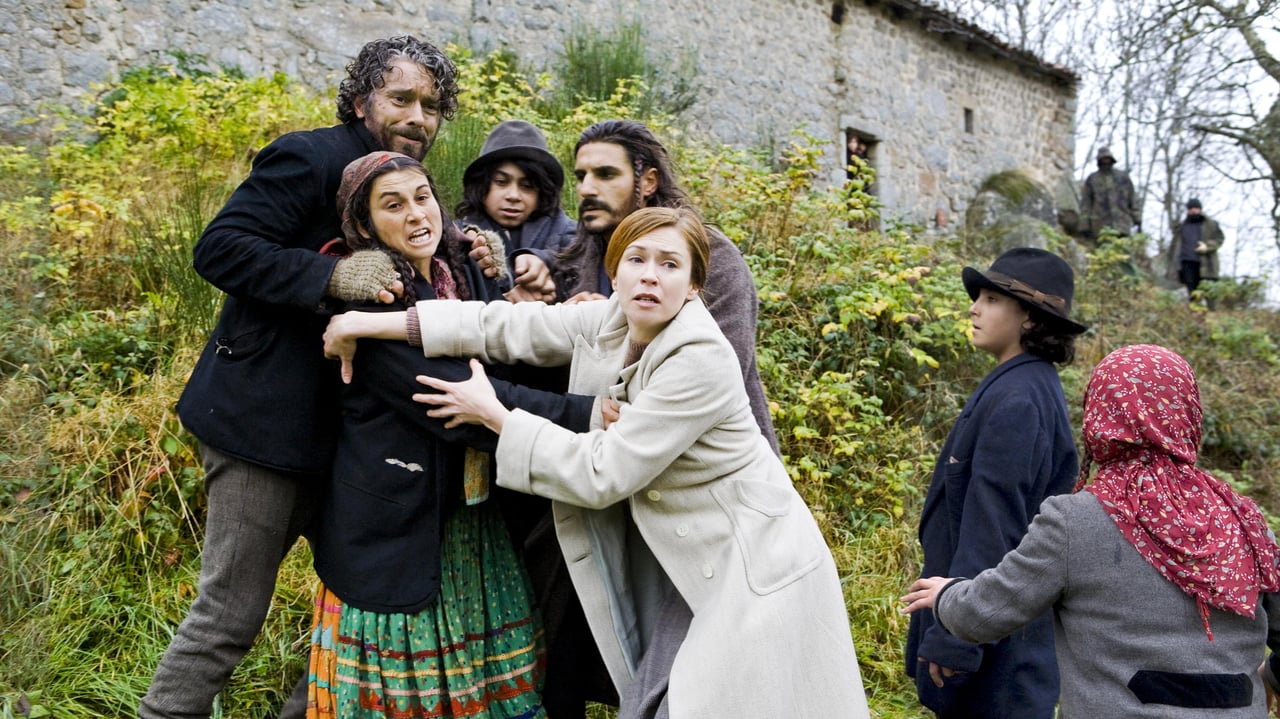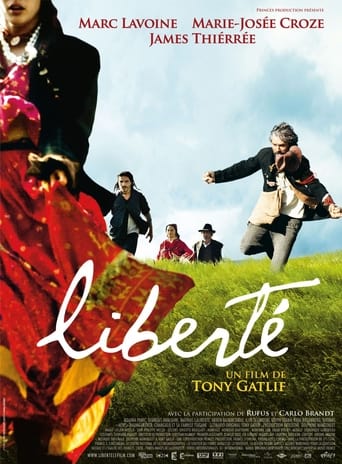Merolliv
I really wanted to like this movie. I feel terribly cynical trashing it, and that's why I'm giving it a middling 5. Actually, I'm giving it a 5 because there were some superb performances.
Plustown
A lot of perfectly good film show their cards early, establish a unique premise and let the audience explore a topic at a leisurely pace, without much in terms of surprise. this film is not one of those films.
Claire Dunne
One of the worst ways to make a cult movie is to set out to make a cult movie.
Anoushka Slater
While it doesn't offer any answers, it both thrills and makes you think.
Nemesis42
The film is a picture of history, fluidly told through effective casting and characterization, brilliant cinematography, perfect music and creative sound design. A lot films that include Nazi's have a depressing and overall heavy flavor. Though this film delves head first into the conflicts that fascism produces, the film left me with an overall warm heart. It was not depressing after the end. The Heart in this film overrides the nazi issues. This has much to do with the well pitched music throughout, and the translations given of some lyrics, and the screen-time on particular strong characters. More in focus is the union that the characters have with nature, their conviction in life and their innocence. The beauty of nature is in focus, and the insanity that humans perform in our would becomes the distant backdrop.Well done film makers for this breath of fresh air. Strong positive message about what a life can be.
dbellmyer
Very few films have dealt with the persecution and annihilation of the gypsies or gitanos during World War Two by Hitler and his minions. For that reason alone, this film is important. If you are looking for other films, you might check out "The Man Who Cried" with Johnny Depp.This film was a nice surprise. I expected it to be depressing, but it was not. What Gatlif managed to portray through some very nice cinematography and story development is the gypsy love of nature and the outdoors. It was beautifully done.Another theme that comes across well in this film is the gypsy love of music. They seem to have an unusual flair for music, and they use it to enrich their own lives, but also to provide an income and support themselves.As someone with a history degree, I appreciated the fact that Gatlif attempted to shed some light on a subject that few have touched. I also appreciated the cultural insights on gypsies and their lifestyle. Anyone looking for something a little different should enjoy this film.
dbdumonteil
Tony Gatlif had already broached the subject of the gypsies in his earlier "Les Princes" (1983) or "Gadjo Dilo" (1998);sadly he never enjoyed commercial success in his native France,in spite of generally favorable reviews by critics .Himself a gypsy,he had to make a movie about his people during WW2 for it was also a genocide ,comparable to that of the Jews ;we learn that up to 25% of them were exterminated in concentration camps.Based on historical facts : the roundups by the French gendarmes in the occupied part of France and the story of a young resistant fighter who takes refuge in a small village where she has become a schoolteacher:what a humiliation it must be for her to have her pupils sing the notorious "Maréchal Nous Voila" (the children shout more than they sing ,perhaps on their mistress's advice)!It's no coincidence if this anthem is followed by the tune of "Le Temps Des Cerises" the revolutionary song of La Commune De Paris (1871).Ther's a sword of Damocles hanging over the band of gypsies who are camping in the small village .Not only the German soldiers ,but also the French police ;and anyway the French agree ,cause "they want to help the country get rid of that vermin" ;the gypsies in France have always been outcasts ,they were before WW2 and they still are in 2011.There are two just people in the village :the school teacher who welcomes the children in her school and the mayor who gives them a house so that they will not be arrested ;a "law" forbids nomadism in the country and the notable tries to circumvent it.It's a pity that the part of the mayor (singer Marc Lavoine ,an occasional actor ,notably in Chabrol's "L'Enfer" )and of the young teacher should be underwritten. All that concerns the gypsy rings true and of course they use their own language (there's an alternative gypsy title ,used abroad).And they make wonderful music.
Paul Martin
I've seen half a dozen or so of Tony Gatlif's films and I've enjoyed them all - in fact his previous film, Transylvania, was my equal favourite cinema release of 2008. While Gatlif's work documents the way of the Roma (gypsies), the themes are universal: celebrations of music, culture, ethnicity and so on. It's the dramatic and visual way in which Gatlif portrays these elements that has much impact for me.Korkoro certainly doesn't disappoint. The visuals are beautifully rendered, and the frame is used wonderfully - sometimes with extreme close-ups, sometimes panoramic. Like Robert Guédiguian's latest film, The Army of Crime, the film is set during World War II. According to the end credits, an estimated 250,000 to 500,000 of Europe's 2 million pre-war gypsies died at the hands of the Nazis. This story follows a wandering family of 15 of those.The Germans in occupied France decreed a law forbidding the movement of itinerants and this family find themselves stranded in a town where they seasonally perform farm work, before they are imprisoned in a camp. The family has the sympathy of the town's mayor - who provides land for the family - and the local teacher, Mademoiselle Lundi (Marie-Josée Croze), who is based on the real-life resistance fighter Yvette Lundy.I love this film. Not only does it have all the trademark Gatlif traits: wild depictions of gypsy life, wild music and spurts of insanity, but its presentation of the rarely depicted and tragic part that the Roma played in WWII combine to make this a lovely story.Some of the visuals are amazing, like a sick horse and its gypsy treatment (it'll have you wondering how the hell they got animals to 'act'). The cinematography is superb. The acting is strong and Croze's role is especially beautifully understated. Well worth seeing.

